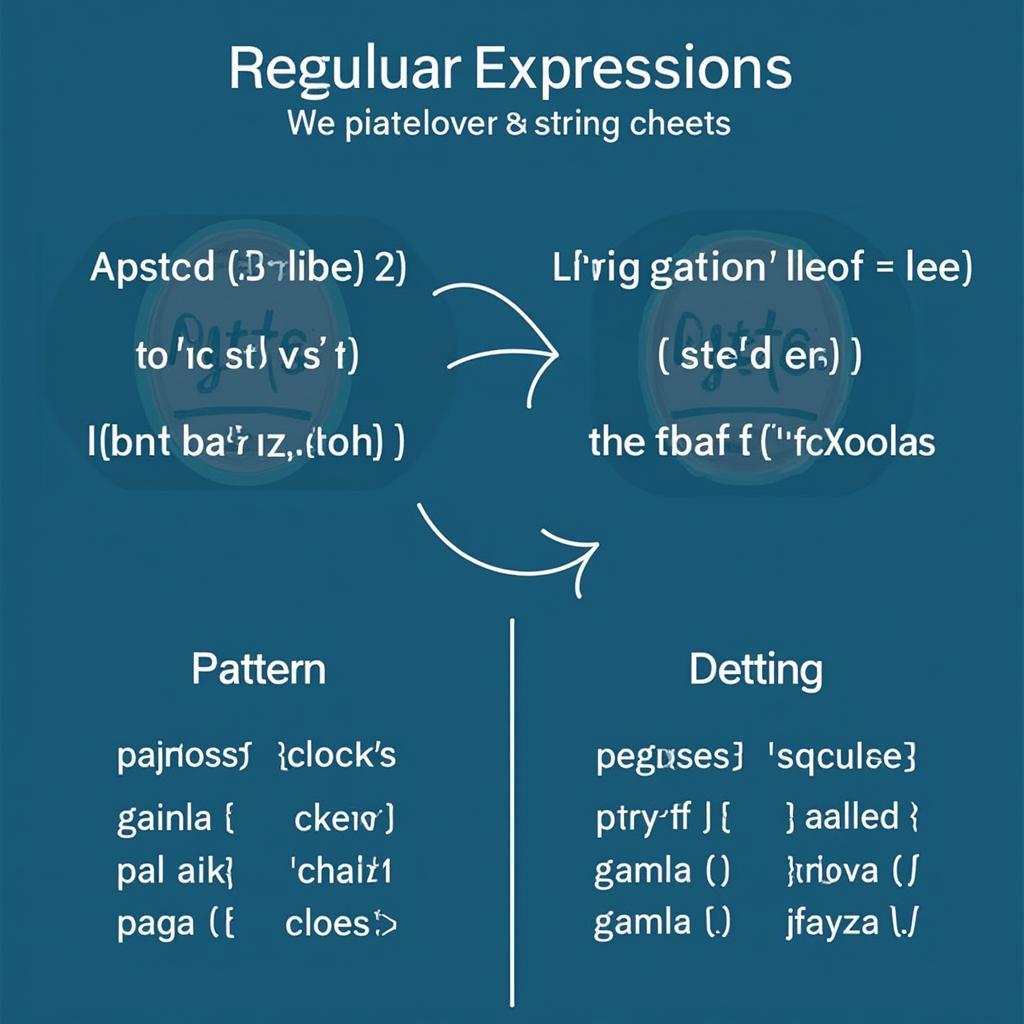String manipulation is a fundamental aspect of Apex development, and understanding how to effectively work with strings is crucial for creating robust and efficient applications on the Salesforce platform. Whether you’re a seasoned Apex developer or just starting out, this guide will provide valuable insights and practical examples to help you master String Apex.
Understanding String Apex Fundamentals
Apex, being a strongly typed language, treats strings as a primitive data type. This means that strings are immutable – once created, their value cannot be changed directly. Instead, operations on strings create new string objects. This is a key concept to grasp when working with string apex. [apex c]
String Concatenation in Apex
Combining strings, also known as concatenation, is a common operation. Apex offers multiple ways to achieve this. The simplest approach is using the ‘+’ operator. For example:
String firstName = 'John';
String lastName = 'Doe';
String fullName = firstName + ' ' + lastName; // fullName will be 'John Doe'Alternatively, you can leverage the String.join method, especially useful when combining multiple strings from a list:
List<String> names = new List<String>{'John', 'Doe', 'Jr.'};
String fullName = String.join(names, ' '); // fullName will be 'John Doe Jr.'String Methods: Your Powerful Toolkit
Apex provides a rich set of built-in methods to manipulate strings. These methods allow you to perform a wide range of operations, from extracting substrings to changing case and searching for specific characters. [heap size issue in apex]
substring(startIndex, endIndex): Extracts a portion of the string.toUpperCase(): Converts the string to uppercase.toLowerCase(): Converts the string to lowercase.contains(substring): Checks if the string contains a specific substring.replace(oldValue, newValue): Replaces occurrences of a substring with another string.
Working with String Apex in Real-World Scenarios
Let’s explore practical scenarios where string manipulation becomes essential in Apex development:
Parsing Data from External Systems
When integrating with external systems, data often arrives in string format. String apex allows you to parse this data and extract the required information. For instance, you might receive a comma-separated value (CSV) string representing customer details, which you need to process and store in Salesforce. [apex free code]
Formatting Data for Display
String apex is vital for formatting data for display in user interfaces. You can use methods like format() to create strings with specific formatting, such as currency or date/time representations.
Decimal price = 123.45;
String formattedPrice = price.format(); // formattedPrice will be a currency representation.Validating User Input
Validating user input is crucial for data integrity. String apex provides methods to check for specific patterns, ensuring user-provided data meets the required criteria.
Building Dynamic SOQL Queries
String apex is indispensable when constructing dynamic SOQL queries. You can use string concatenation and other methods to build queries based on user input or other dynamic conditions.
Best Practices for String Apex
- Avoid excessive string concatenation within loops. Prefer using
String.joinor StringBuilder for improved performance. - Utilize the rich set of built-in string methods provided by Apex for efficiency and readability.
- Consider using regular expressions for complex string manipulations and validations.
- [408734]
String Apex: Common Questions
How do I convert a string to an integer in Apex?
Use the Integer.valueOf() method.
What is the difference between substring() and left()/right() methods?
substring() extracts a portion of the string based on start and end indices, while left()/right() extract a specified number of characters from the beginning/end of the string, respectively.  Advanced String Apex Techniques
Advanced String Apex Techniques
Conclusion
Mastering string apex is fundamental for any Salesforce developer. By understanding the core concepts, utilizing the powerful built-in methods, and following best practices, you can effectively manipulate strings to build robust and efficient Apex applications. With the knowledge gained from this comprehensive guide, you’ll be well-equipped to tackle any string-related challenge in your Apex development journey. Remember that efficient string handling not only improves code performance but also contributes to the overall maintainability and readability of your Apex projects. [fear of cheating]
FAQ
- What are some common string methods in Apex?
- How can I avoid heap size issues when working with large strings?
- How can I perform case-insensitive string comparisons in Apex?
- How can I use regular expressions in Apex for string manipulation?
- What are some best practices for optimizing string performance in Apex?
- How to handle multi-byte characters in String Apex?
- What are the limitations of string manipulation in Apex?
Related Articles and Further Exploration
- Explore more on Apex collections:
[apex c](https://vnggame.pro/apex-c/) - Learn about handling heap size issues:
[heap size issue in apex](https://vnggame.pro/heap-size-issue-in-apex/)
Contact us for support: Phone: 0902476650, Email: [email protected] or visit us at 139 Đ. Võ Văn Kiệt, Hoà Long, Bà Rịa, Bà Rịa – Vũng Tàu, Việt Nam. We have a 24/7 customer support team.





